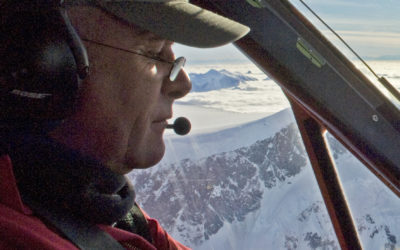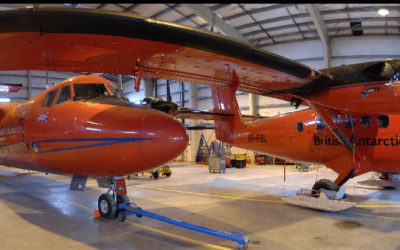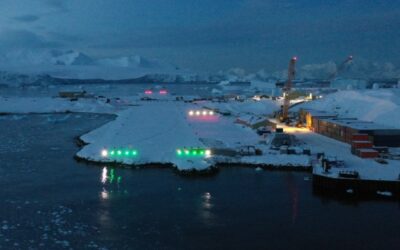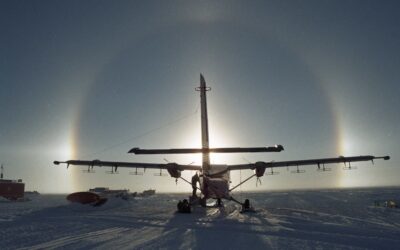New Year Honour for British Antarctic Survey’s Head of Air Unit
3 January, 2025
Rod Arnold, Head of the Air Unit at the British Antarctic Survey (BAS), has been awarded an MBE in the New Year Honours list for services to Polar Science and …
Is to operate and manage an integrated fleet of aircraft for research, survey and polar logistics.
We aim to execute a challenging programme of airborne science and logistics and to provide a worldwide capability that gives the environmental science community access to a range of aircraft platforms and instrumentation. The fleet comprises the five specially adapted aircraft (De Havilland Canada Dash 7 and four Twin Otters).
At the beginning of each season the aircrew – eight pilots and four engineers – ferry the aircraft south from their base in the northern hemisphere. Flights in the Antarctic take place during the Antarctic summer, between October and March, as winter darkness and very cold temperatures prevent flying at other times.
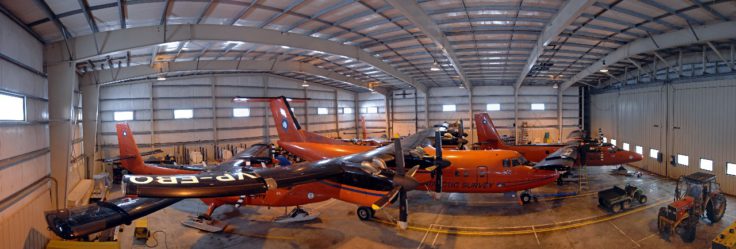
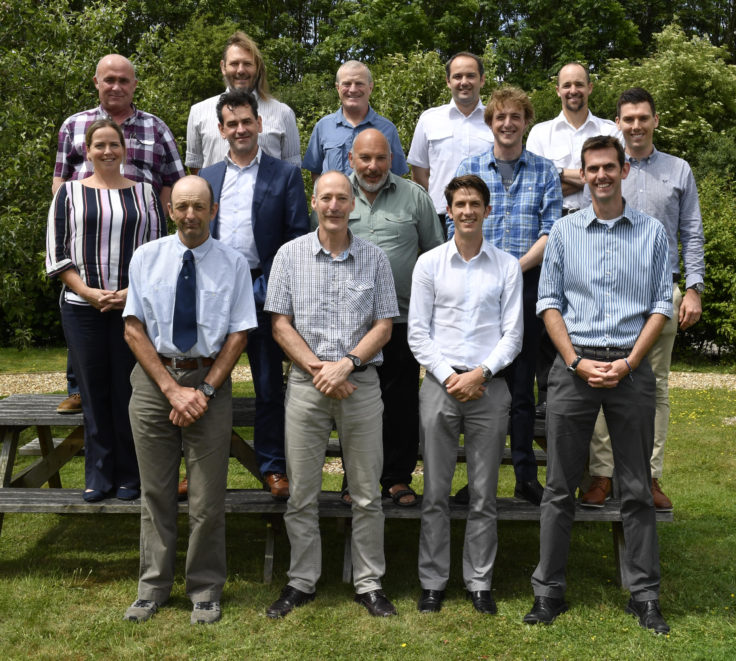
3 January, 2025
Rod Arnold, Head of the Air Unit at the British Antarctic Survey (BAS), has been awarded an MBE in the New Year Honours list for services to Polar Science and …
25 October, 2024
British Antarctic Survey has won the Gold Award at the National Building and Construction Awards 2024 for ‘The Project of the Year (£10 million to £25 million)’. Oliver Darke, Director …
3 February, 2024
A team have arrived at Rothera Research Station, ready to start testing the new Windracers ULTRA autonomous drone in Antarctica. If successful, the new drone platform could represent a major …
3 February, 2023
A team of scientists are currently conducting a major experiment over the Southern Ocean that will help to improve climate modelling. The Southern Ocean Clouds project team are performing several …
11 August, 2022
Scientists are flying research aircraft through the heart of Arctic storms this summer to better understand how weather systems are affecting polar sea ice. Arctic cyclones are the main type …
30 September, 2021
Despite the global pandemic, the strong strategic relationship between the Falkland Islands Government (FIG) and British Antarctic Survey (BAS) has gone from strength to strength. Following the success of the …
23 April, 2019
Scientists embark on a three-week flying campaign today (23 April) to study methane emissions from gas fields in the southern North Sea. Using specialised scientific equipment, on board one of …
18 December, 2018
British Antarctic Survey is seeking to purchase a small passenger aircraft to work alongside its de Havilland Canada DHC-7 Series 110 (Dash 7). The aircraft will transport science and support teams and cargo between Rothera Research Station on the Antarctic Peninsula and Punta Arenas, Chile.
11 August, 2017
The British Antarctic Survey Air Unit have been awarded the Johnston Memorial Trophy for 2017 by The Honourable Company of Air Pilots. This is a considerable acknowledgement of the regard held …
23 November, 2015
New season tackles ambitious science and logistical challenges The British Antarctic Survey (BAS) 2015/16 field season is underway with dozens of scientists and support staff – together with planes and tonnes …
8 December, 2009
British Antarctic Survey achieves registration for the International Standard for Business Aircraft Operations British Antarctic Survey (BAS) has achieved registration for the International Standard for Business Aircraft Operations (IS-BAO). Following …
7 March, 2025 by Matthew Hughes
As Rothera Research Station continues its modernisation programme, Matt Hughes, Tower Operations Supervisor, shares his thoughts on the transition to our new Operations Tower, marking a significant milestone in Antarctic …
12 March, 2019 by James France
Dr James France has just completed a week-long flying campaign using one of the BAS Twin Otters fitted with scientific instrumentation. Find out more about his experience.
2 December, 2015 by Ashly Fusiarski
As we finally approached our input site I could see our future home in the distance, a little black dot on a frozen white ocean, slowly growing in size as …
1 December, 2024 by Alexandra Weiss, Daniel Beeden, Thomas Lachlan-Cope
The THINICE field campaign, based from Svalbard in August 2022, provided unique observations of summertime Arctic cyclones, their coupling with cloud cover, and interactions with tropopause polar vortices and sea…1 January, 2003 by Kevin Hughes, Peter Convey, Rod Arnold
Over 15 months between January 1990 and March 1991, a range of physical, chemical and biological parameters was monitored regularly in fellfield soils of frost-sorted polygons at four sites on…1 January, 2001 by Rod Arnold
Overgrowth competition, sub-lethal mortality (some zooids killed but colony survives) and subsequent growth from fragments, and diversity of communities encrusting rocks (pebble through to boulder size) were examined from five…1 January, 2001 by Rod Arnold
The Madagascar coast (both) has a higher density and diversity of hermit crabs than is known from any other localiy in the western Indian Ocean. Of the 20 species occurring…Read more on Ecology of subtropical hermit crabs in S.W. Madagascar: cluster structure and function
1 January, 2001 by Rod Arnold
Growth and mortality of 3 species (Inversiula nutrix, Celleporella bougainvillei, Fenestrulina rugula) of encrusting bryozoans were examined from 5 Antarctic localities, along a latitudinal gradient. Typically, growth in marine invertebrates…1 January, 2000 by Eric Wolff, Victoria Auld
Frost flowers collected from the surface of new sea ice near the Brunt Ice Shelf, Antarctica, show depletion in sulphate and sodium relative to other sea water ions. This is…Read more on Frost flowers as a source of fractionated sea salt aerosol in the polar regions
1 March, 1999 by David Barnes, Rod Arnold
Aim Encrusting faunal communities on rocks were examined from Southern Ocean intertidal and subtidal (6 m) zones to investigate potential change with latitude. Location The site locations were South Georgia…1 January, 1999 by Peter Convey, Rod Arnold, William Block
Qualitative samples of Collembola were obtained from a range of substrates near Husvik, Stromness Bay, South Georgia, between January anti March 1996. Collections made at Hope Point near Grytviken (Cumberland…1 January, 1998 by Peter Convey, Rod Arnold
Two populations of the world's most southerly diving beetle (Lancetes angusticollis) were studied on sub-Antarctic South Georgia between November 1995 and April 1996. Parallel observations were made on laboratory cultures…Rod Arnold, Head of Air Operations
Mark Thomas, Head of Aircraft Engineering
David Landy, Chief Pilot
Information for pilots and engineers on visiting aircraft
